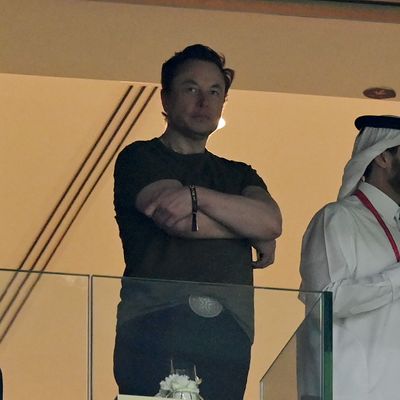
Just days after Elon Musk’s Twitter began suspending the accounts of multiple journalists under questionable pretenses, the company announced that it would begin censoring and suspending Twitter users who share details about their profiles on other social-media platforms. Then, following widespread backlash over the policy, Musk indicated it would be adjusted — and eventually both the policy itself and the official tweets announcing it were deleted by the company.
Amid the endless tumult since Musk acquired the social network, countless Twitter users have been flirting with various alternatives like Mastodon or Post, then sharing the links to those accounts in tweets and their bios. The practice has become particularly common among people who have been critical of Musk’s regularly outlandish behavior and/or the new direction of Twitter under his leadership. But even for users who have not fully fled the platform, posting “where else you can find me” details has emerged as a kind of insurance policy in the event of Twitter’s demise, either due to technical issues following the gutting of the company’s workforce, or any kind of sudden departure of users en masse in response to what Musk is doing to the platform. And, of course, people have been sharing their other social media links on Twitter for as long as there has been a Twitter.
According to the new policy announced (and later deleted) Sunday, the company would ban its users from talking about where else they post, in what was either an attempt to stave off the exodus, or bitter retaliation against those daring to leave — or both. There were at least some signs that the suspensions began immediately:
Later Sunday, Musk said he would at least partially reverse the policy, remarking in a tweet that the “policy will be adjusted to suspending accounts only when that account’s *primary* purpose is promotion of competitors, which essentially falls under the no spam rule.” If that’s the case, it’s not clear why they would need a new policy.
In another tweet, Musk also apologized and claimed that “Going forward, there will be a vote for major policy changes.” Then he put up a poll asking if he should step down as the head of Twitter, vowing to abide by the result.
Under the new policy, Twitter said that “at both the Tweet level and the account level, we will remove any free promotion of prohibited 3rd-party social media platforms” — including Facebook, Instagram, Mastodon, Truth Social, Tribel, Post, and Nostr, as well as hub pages that aggregate someone’s profile links like linktr.ee and lnk.bio.
Violators of this policy would be subjected to tweet deletion, temporary account locks, and temporary or even permanent bans. The policy suggests that cross-posting content from the banned competitors would still be allowed, but it’s far from clear how that would actually play out in practice. Indeed, it’s far from clear how the overall policy could even be enforced. On Thursday, the company began blocking tweets that included links to prominent Mastodon servers, and it’s possible that similar link- or language-banning could be automated for additional sites. It’s also notable that Twitter’s biggest competitor, TikTok, is absent from the list of prohibited sites.
As just one example of how common these link-shares are, Twitter’s founder and former CEO is currently in violation of the new policy:
At best, even if the new policy wasn’t universally enforced, it would give Musk and Twitter another tool to selectively and arbitrarily silence critics on the platform — which is precisely what already appears to have been happening in recent days.
Starting Thursday, a number of journalists who cover Musk have had their accounts suspended for what Twitter and Musk claims were policy violations. On Saturday, the account of Washington Post tech journalist Taylor Lorenz was also suspended without explanation. Her last tweet had been directed at Musk, asking him to comment on a story she and her Post colleague Drew Harwell (whose account was suspended on Thursday) were working on.
In a reply to a tweet about her ban on Sunday, Musk claimed it was a “temp suspension due to prior doxxing action by this account” that “will be lifted shortly.” In other words, Lorenz’s account was retroactively suspended for some past violation, without explaining what or when that violation was. When she appealed the suspension, Twitter replied that the judgment was permanent and could not be appealed. A short time later, her account was restored.
While Musk continues to insist that freedom of speech is Twitter’s new north star, so far it has looked a lot more like an asterisk.
This post has been updated.






























